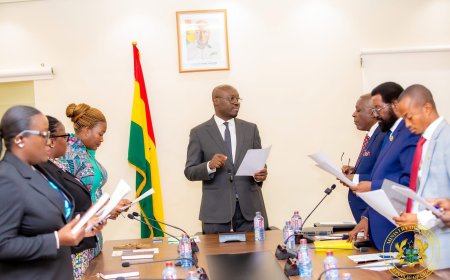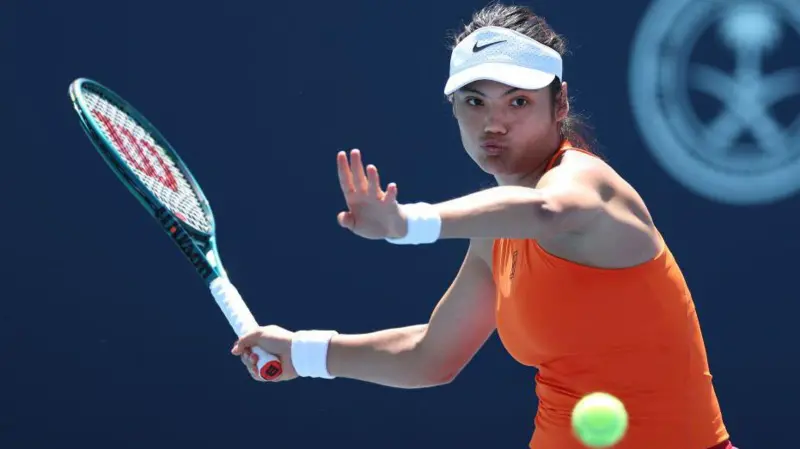Gender 'should not be a barrier’ to coaching men
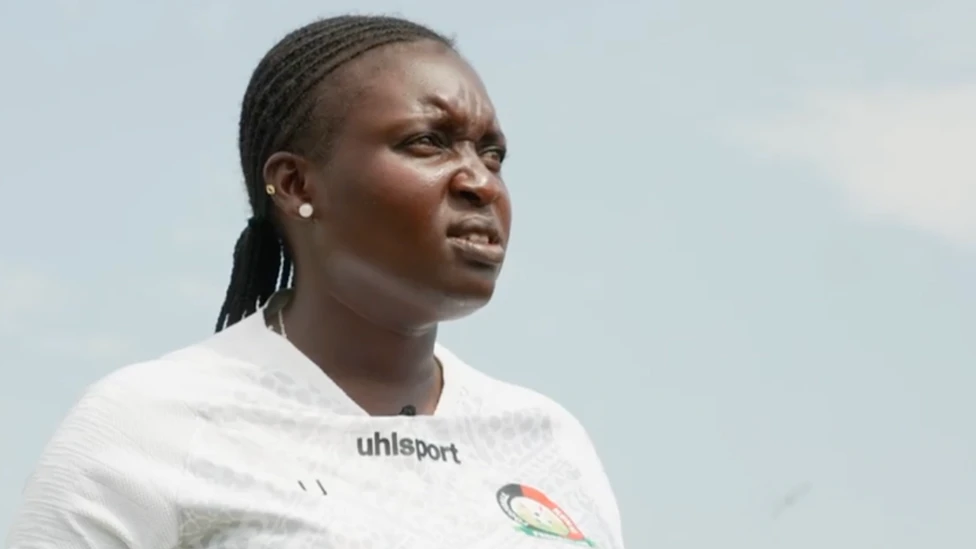
Jackline Juma is making history as the first woman to coach a men's team in Kenya's top flight - but is still having to cope with sexism on the touchline.
Leading FC Talanta into the new Kenyan Premier League (KPL) season, it did not take Juma long to realise that not everyone viewed her appointment as positive.
"There were some words uttered from the other bench like 'We are not playing women's football'," Juma told BBC Sport Africa, discussing her second game in charge against Sofapaka.
"And I was like 'Oh, OK. But let 90 minutes decide'."
Juma's side ran out 1-0 winners to silence her critics.
"After the match, of course, we did not shake hands," she said.
"Earning three points against a very experienced coach gave me the motivation that I need to keep going."
A Sofapaka official did not respond to a request for comment on the incident.
She names Real Madrid boss Carlo Ancelotti and Arsenal coach Mikel Arteta as her inspirations in the dugout, and aims to implement a dominant possession-based style.
While she has become a pioneer for other women to follow, at first she did not view her appointment in August through the prism of gender.
"To me, I thought it's normal," she said.
"It wasn't until they talked about it being history that I realised this is big.
"Gender should not be a barrier. I told myself they'll judge me based on what I deliver, not because I'm a female coach."
Winning over players
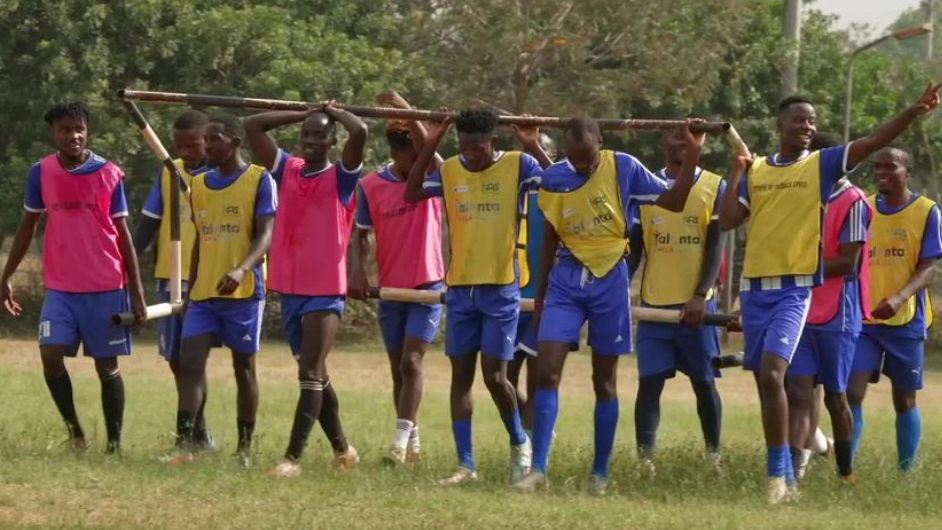
Talanta are 15th in the KPL after five games of the season
Juma began her pathway into coaching aged 16 and, after working her way through several courses, also works as an elite coach educator.
She garnered extensive experience with several women's clubs and Kenya's Under-20 women before the call from Nairobi-based Talanta came.
Her first task was winning over her family, who were sceptical about her taking the job and questioned whether she would be able to handle the pressure.
"They were also concerned about the critics but I told them 'There's nothing difficult. Let us give it a try'," she explained.
Then came the Talanta squad itself.
"There was a player who texted me 'Coach, let me take this opportunity to congratulate you and welcome in the team before even you come'.
"This gave me a head start."
Captain Augustine Kuta admits Juma's appointment was "a shock" for most of the squad, but they were quickly won over in training.
"After her first session, how she handled it, we could feel that she was really qualified for the job," Kuta told BBC Sport Africa.
"[There were] new drills that most of the players didn't expect from a female coach. After the first session everyone was ready to work and help her achieve her goals."
However, Kuta says opposing players have questioned Juma's capabilities.
"Most are like 'Are you going to manage performing in the league with a female coach? The Premier League is difficult. It needs an experienced coach'," the 32-year-old midfielder explained.
"But that's what's driving us - trying to disprove them.
"They should not put her down because she's a female coach. We have seen what she can do."
Showing perseverance
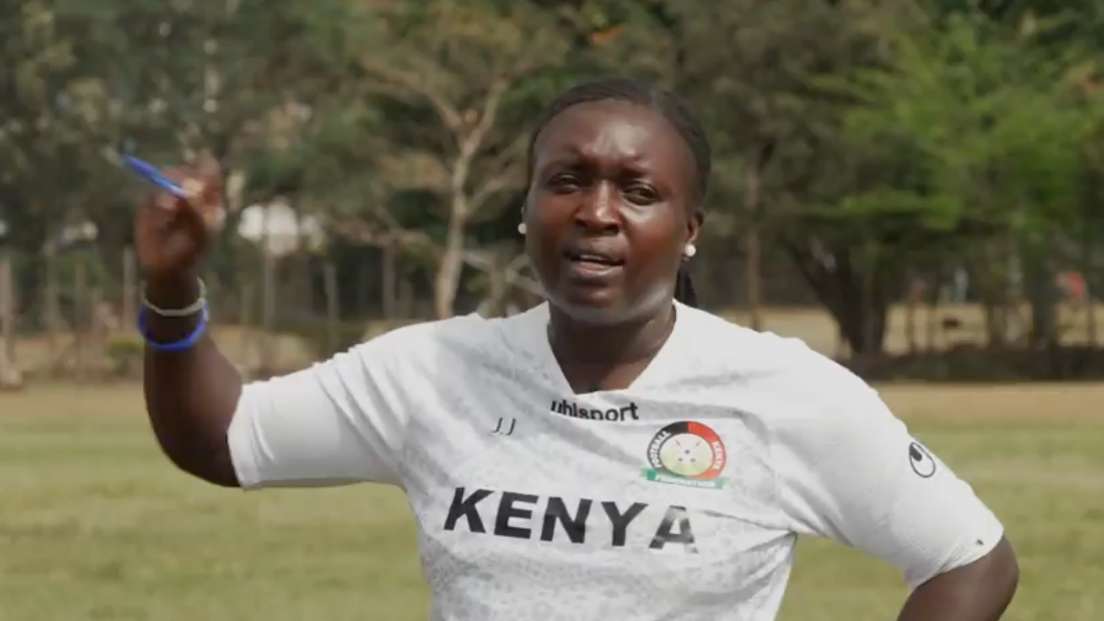
Juma is targeting a top-six finish in the KPL this season
Juma's journey to the KPL has not been straightforward.
She faced significant pushback from her family when she began playing football aged nine, as they saw the game as "a boy's thing".
"I kept on going, no matter how hard it was, until eventually they started supporting [me]," she said.
She had earned a spot on the national team before being forced to hang up her boots and concentrate on coaching in 2016.
Talanta finished 15th in the 18-team top flight last season and several male coaches with similar qualifications expressed interest in taking charge.
But vice chairman James Theuri said the club was willing to go in another direction.
"We wanted a coach not only for immediate results but who can grow with our players," he told BBC Sport Africa.
"Jackline has proven that she can be a good mentor and has a passion for young athletes.
"It wasn't an easy decision to make, but Jackline was qualified and we wanted to challenge the boys."
Pushing for gender equality
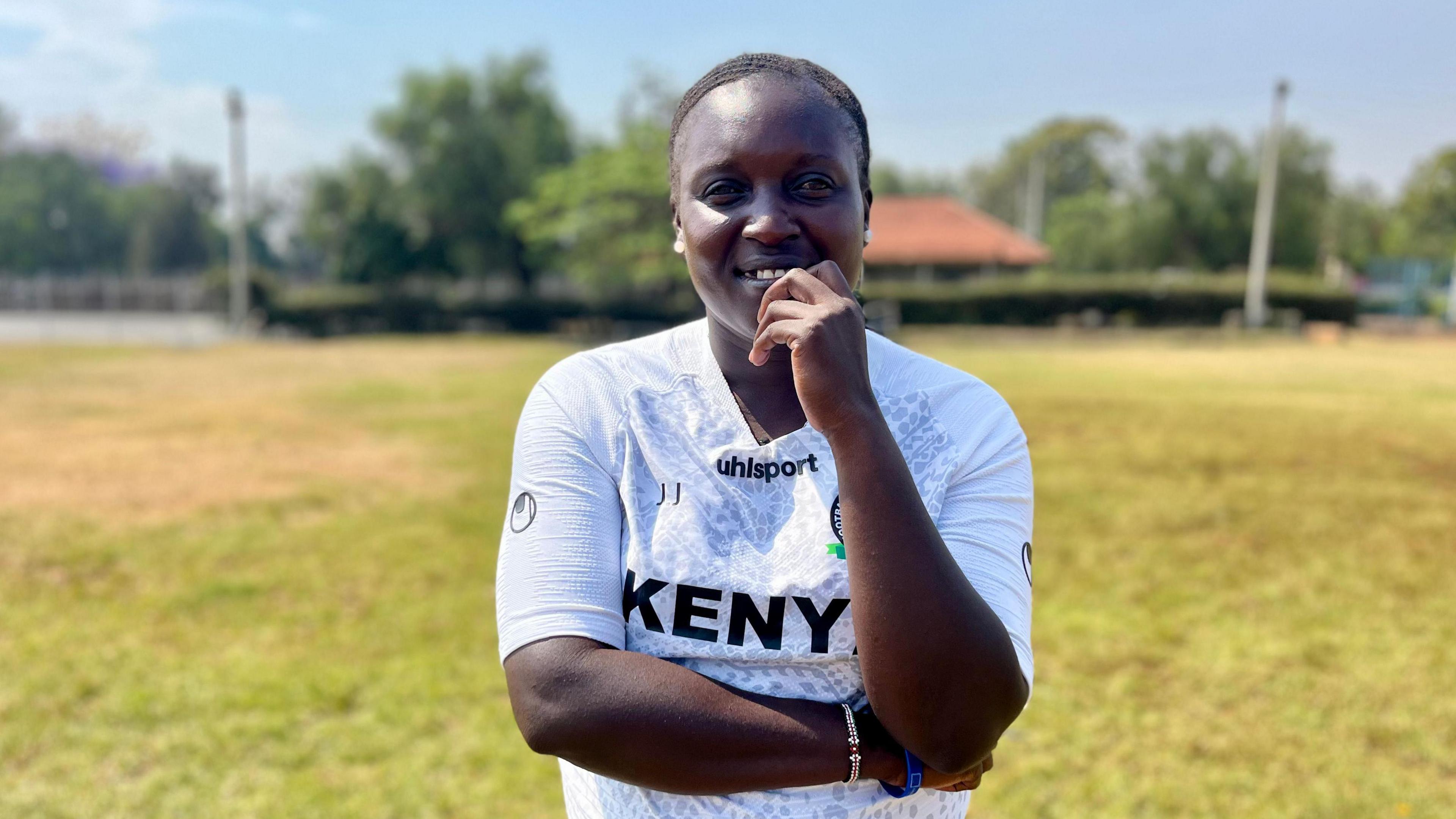
Juma made 26 international appearances for Kenya women, nicknamed the Harambee Starlets
Juma's appointment has also given her a greater platform to call for fairness between the sexes and equal pay.
"It's football. It's not like we are playing 60 minutes and they [men] are playing 90 minutes," she said.
"We are putting in as much effort. The motivation should be equal for both men and women."
In a sign that things are changing, Juma is not the only female head coach to have led a top team in East Africa this season.
In October, Oliver Mbekeka was placed in temporary charge of Ugandan Premier League side Lugazi, winning her only game 1-0 against Giants before stepping back to her regular role as assistant coach.
But Juma is clear that this is just the beginning of what needs to be a broader movement, having experienced gender bias during her rise through the sport.
"This was one of the most annoying things for me in my career - female players [being] treated with so much disrespect compared to men," she said.
As for her ambitions on the pitch, Juma aims to lead Talanta to a top-six finish in the KPL this season.
Currently lying 15th, with two draws and two defeats alongside their win over Sofapaka, they are four points adrift of sixth-placed Tusker with two games in hand.
Whatever the season brings, Juma hopes her story will encourage women and girls who dream of a career in football.
"I want to inspire them and show them that it’s very much possible," she said.
"All they need first is to believe in themselves, have confidence, get the required knowledge, and every opportunity they get, they should make good use of it."
Source: BBC Sport



















